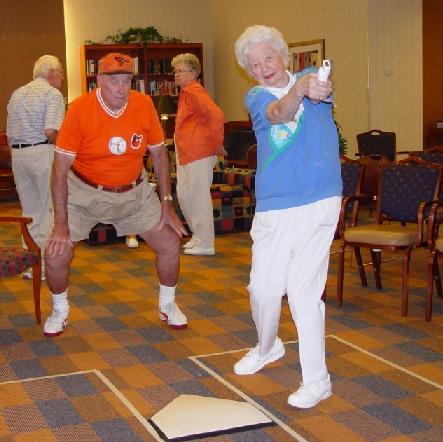This post has not been edited by the GamesBeat staff. Opinions by GamesBeat community writers do not necessarily reflect those of the staff.
 Unlike so many of my friends who work in the industry, I did not have the privilege of attending GDC this year. No, in fact, I had the fortune of substituting such an event with a root canal and a trip to the doctor for a physical (yes, the turn-your-head-and-cough kind). Along with my Facebook being flooded with photos of my pals rubbing shoulders with industry folks, I also found myself unable to turn a corner, while in downtown San Francisco, without seeing someone with a GDC badge around their neck.
Unlike so many of my friends who work in the industry, I did not have the privilege of attending GDC this year. No, in fact, I had the fortune of substituting such an event with a root canal and a trip to the doctor for a physical (yes, the turn-your-head-and-cough kind). Along with my Facebook being flooded with photos of my pals rubbing shoulders with industry folks, I also found myself unable to turn a corner, while in downtown San Francisco, without seeing someone with a GDC badge around their neck.
With all of this tongue-in-cheek humor aside, today wasn’t a very uplifting day. Still, I tried making the best of it, and, while spending my day so near the aforementioned event, something was brought to my attention: there are a lot of old people that work in the industry.
Now, let me be clear (specifically for the proprietors of this site), I do not mean “old” in a stigmatic way. I may be somewhat young and naive, but I am very respectful of all of you people out there over 30 years of age. I, in no way, think such a large number of years on this earth should have any sort of applicability towards anyone’s ability to have fun. I understand that gamers come in all shapes, sizes, and ages. However, bear with me, as I state a specific moment in which this observation really hit me.
At close to 2:00 today, I was sitting in the waiting room at the doctor’s office. I found myself dozing off (due to the drugs from my previous dentist visit) when I noticed an older gentleman walk in and sit next to me. He had around his neck a GDC badge bearing his name (which I won’t say) and the company he worked for (which I won’t say, however much I’d love to). I was hesitant to speak to him, although I eventually blurted out, “Pardon me, sir, but may I ask how old you are?” His confused reaction was merited, as I doubt he gets that question very often. He answered, though, and, to my great surprise, the man stated that he was 68 years old.
For a while preceding, I became a tad pissed off due to the fact that my doctor was located at 21st Ave. and Geary St. (no place near GDC) and yet one of the bastards from the event still found me. After that, though, I began to ponder the fact that there are a lot of older people in an industry aimed towards young people (mid 20’s, like me).

You're never too young to crap yourself at home plate.
You might be asking yourself, “So what? How does this affect the games, themselves?” Well, that I can’t answer with any substantial evidence. I asked myself the same thing, though, and it led me to wonder just what a 68-year-old man had to offer such a young industry – built almost entirely on the prospect of engaging fun. I’m not trying to belittle the elderly, but, in all honesty, we all have grandparents and unless it is “Wii Sports” you’re rarely going to see them playing a video game.
Perhaps this is an observation only I have made, but I wonder if any of you have anything to add on this matter? Could video games becoming such a lucrative business be the reason for so many older folks joining the ranks? Could these folks and their profit-before-creativity approach be the reason for the industry having such a noticeable abundance of copies and generic fluff?
Personally, I found this a bit unsettling. I used to be under the impression that the industry is maintained by hip, cool, young gamers with fun attitudes and dispositions. While a lot of that is still true, the tragic reality is that the decision-makers are fogies who have played very few games. I’ve even heard accounts of executives who actually don’t like games, period. And while I do understand that a large number of older folks in the video game industry are its pioneers (Wright, Miyamoto, Molyneux), a lot of the people calling the shots don’t seem to share the same ageless spirit that these men do.
All of this led me to reflect on the fact that, yes, this is a business like any other, affected by trends and a free-flowing market of ideas that are often copied and built upon. However, even in my young age, I remember a time when competition was bested by ingenuity and gumption. Nowadays, I see the majority of game companies taking the safe approach and doing the exact things that caused older companies to fail, back when games were a new and uncharted (and untainted) world.

The CEO of Activision, I believe.
Baby-boomers have turned a relatively free-spirited and spontaneous industry into one of cold calculations and market trends. Seemingly, what was once a party of social outcasts and nerds, expressing their world of escapism and imaginative recreation, has been crashed by Rich Uncle Pennybags, who has allowed the party to be overrun by the very people who the outcasts and nerds were proud to distinguish themselves from.
I can’t completely blame such regression on old people, entirely; after all, the market and its consumers also play a large roll in this change. However, what made my feelings on this matter even more resolute and dismal was the fact that this man, this 68-year-old industry representative, had almost no interest or enthusiasm when I began to speak with him about the industry, video games, and even GDC. Call it bad timing, if you will, but I can almost guarantee that 90% of the younger industry men and women would have met the same conversation with excitement and delight.
This is but one of the many reasons why I have slowly fallen away from games, over the past few years. I look at things in a positive (and morbid) light, however: eventually, our parents’ and our grandparents’ generations will die, and we will be left to do with this industry as we please, with an emphasis on fun and creativity, and not so much on prosperity and growth. God only knows how resilient these Baby Boomers and Generation Xers are, though. And there’s also no telling if our generation will share the same business approach as these old folks do, when they eventually get in the driver’s seat.
